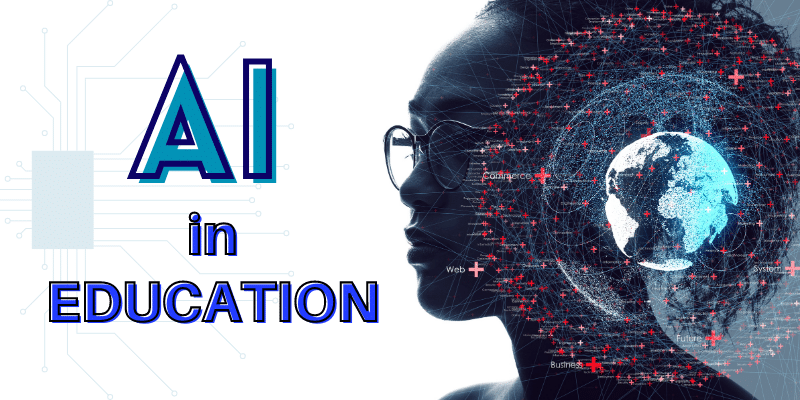Digital technology has revolutionized every facet of our lives – including how we learn. AI technology has opened doors for educators and learners alike to explore creative approaches to education; educators utilizing these AI-powered tools for enhanced learning experiences that foster personalized, interactive, and accessible education experiences for their students. At the forefront of this revolution are AI learning videos–an engaging medium that leverages artificial intelligence algorithms and the visual appeal of video content to deliver engaging and effective educational experiences. We explore AI learning videos here, detailing their benefits, applications, challenges, and emerging trends shaping education’s future.
Introduction: Education in the Digital Era
Today, education is experiencing unprecedented transformation due to technological developments and rising student demands for personalized, accessible learning experiences. AI has emerged as an impressive weapon to transform education, offering new possibilities for improving teaching and learning through intelligent automation, data-driven insights, adaptive learning technologies, and other forms of AI technology. At the heart of this revolution are AI learning videos: an innovative method for content delivery that leverages artificial intelligence’s abilities to provide personalized, interactive, and accessible educational experiences to learners across age ranges and backgrounds.
AI Learning Videos Are Benefits: Customizable, Engaging, and Accessible Learning Experience
One of the central benefits of AI learning videos lies in their ability to provide personalized learning experiences explicitly tailored to every learner’s needs, preferences, and abilities. By employing AI algorithms to analyze student data and track learning progress, these videos can adapt content delivery in real-time for optimal student engagement and motivation while meeting unique learning goals and deepening comprehension of the material presented. Such personalized approaches enhance engagement and motivation while increasing overall outcomes by meeting individual learner needs and expanding understanding.
AI learning videos go beyond personalization by offering interactive features that engage learners and foster active learning. From quizzes and simulations to gamified exercises and collaborative activities, these AI videos allow students to actively participate in learning while exploring concepts further and applying them in real-life situations. Such interactivity not only makes the experience of studying more engaging but also helps reinforce key ideas while increasing retention rates by offering experiential opportunities tailored specifically toward different learning styles and preferences.
AI learning videos further increase accessibility by employing AI-powered captioning, translation, and transcription tools to assist students with diverse learning needs, including those with disabilities or language barriers. Through automatically producing captions, subtitles, and transcripts in multiple languages, AI learning videos ensure educational content can be accessed by all students regardless of language proficiency or hearing ability – this ensures inclusivity and equity for education while giving learners access to resources anytime, anywhere, on any device that allows for personalized learning at their own pace and on their terms.
Applications of AI Learning Videos: Revolutionizing Education across Industries
AI learning videos have various applications in industries and educational environments alike. Their uses in K-12 education range from supplementing traditional teaching methods, reinforcing concepts learned, providing additional resources, engaging students more deeply, and stimulating creativity – such as math tutorials or science experiments to history lectures or language lessons; AI learning videos use all to enrich and engage student’s experience of learning while stimulating curiosity, critical thinking skills and creativity.
AI learning videos have quickly become a standard in higher education institutions and online platforms for providing lectures, tutorials, and course materials in an engaging format. Online learning enables students to access educational material whenever and wherever they desire; learning at their own pace according to individual needs and preferences can also be tailored through AI videos that deliver lectures asynchronously or engage through synchronous discussions or collaborate projects and virtual labs – AI videos provide higher education institutions with innovative tools for offering top-tier education to a global student population.
AI learning videos have quickly become an indispensable element of corporate training programs and professional development initiatives, providing on-demand access to educational material and supporting continuous learning in the workplace. Organizations using remote work and distributed teams increasingly rely on these digital formats as training modules, skill-building workshops, compliance courses, or employee onboarding modules can all be delivered effectively through AI learning videos – offering cost-effective yet scalable solutions for upskilling their workforces as they drive performance improvement across their organization.
Challenges and Considerations in Addressing Ethical, Privacy, and Equity Concerns
AI learning videos offer many advantages to educators; however, their use must also consider specific challenges and considerations to ensure ethical use in education. One such challenge is quality assurance, as AI-generated educational material may lack human-made material’s accuracy, relevance, and credibility. To counteract this issue, it is crucial to implement quality control measures (human oversight/validation, etc) to ensure accuracy and integrity when creating AI educational material.
Data privacy and security concerns must also be taken seriously to maintain trust between AI learning videos and students. With AI algorithms collecting and analyzing student information for personalized learning algorithms, the risk of unauthorized access, data breaches, misuse, and disclosure exists. To safeguard student privacy, it is crucial that robust measures such as encryption, anonymization, and user consent be put in place to guarantee confidentiality and protection throughout their learning experience.
AI learning videos may exacerbate inequities in accessing technology and digital literacy skills, widening an already present digital divide that disproportionately affects underserved communities and marginalized populations. To address this equity concern effectively, AI learning videos must be accessible to students regardless of socioeconomic status, location, or cultural background – this may involve providing device access, internet connectivity, or resources that assist students in developing digital literacy skills while breaking down any potential barriers preventing accessing AI videos.
Emerging Trends and Technologies: Exploring AI Learning Videos as Part of Their Education Video Library
As AI advances and evolves, new trends and technologies are shaping the future of AI learning videos. One such trend involves natural language processing (NLP) algorithms being utilized in AI learning videos to analyze spoken or written language used within them for automated transcription, translation, and sentiment analysis features such as automatic caption generation in multiple languages utilizing NLP algorithms enabling transcription, translation, and sentiment analysis capabilities as well as caption and transcript generation by these videos for enhanced accessibility and inclusivity among diverse audiences worldwide.
Computer vision technology has emerged as an innovative solution, adding visuals and interactivity to AI learning videos. By employing image recognition algorithms such as object, face, and gesture recognition, AI learning videos provide immersive and engaging learning experiences that foster active student participation while encouraging active learning experiences such as virtual labs or simulations as well as AR overlays or quizzes powered by computer vision-powered AI learning videos provide new ways of engaging hands-on experiential education beyond the bounds of traditional educational boundaries.
Adaptive learning platforms have also gained prominence as a way of personalizing the learning experience and optimizing outcomes through AI algorithms to assess student progress, adapt learning materials in real-time, and offer customized feedback and recommendations; these adaptive platforms offer educators a flexible tool with which they can meet every learner’s individual needs and preferences while meeting engagement, retention, and mastery of objectives for maximum engagement, retention, and mastery of objectives. From adaptive assessments and personalized learning paths through accurate real-time feedback analytics dashboards – adaptive platforms offer holistic educational approaches that empower learners to reach their full potential!
Conclusion: AI Learning Videos as the Future of Education
Artificial intelligence learning videos offer transformative force in education by offering personalized, accessible learning experiences that empower learners to reach their maximum potential. Artificial Intelligence learning videos have revolutionized how we teach and learn, providing innovative tools and technologies that enhance teaching effectiveness while improving learning outcomes and inculcating a culture of lifelong learning. From K-12 classrooms to higher education institutions and corporate training programs, AI learning videos are rapidly reshaping how we teach and learn – offering innovative ways of increasing teaching efficiency, improving student outcomes, and cultivating lifelong learners. By harnessing AI learning videos’ potential and considering any accompanying challenges or considerations, we can unlock new avenues of educational innovation while equipping learners of all ages and backgrounds to thrive in today’s digital world. As we shape education’s future together, let us embrace AI’s power for building brighter, more inclusive, equitable educational futures worldwide.




